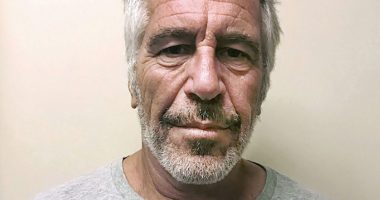Share this @internewscast.com
President Donald Trump, pictured on the right, talks with reporters while Secretary of State Marco Rubio listens, as they arrive at Morristown Municipal Airport in New Jersey heading toward Camp David, Maryland, on Sunday, June 8, 2025. (AP Photo/Manuel Balce Ceneta)
A Seattle federal judge declared there is a pressing need for clarity and decisive steps to determine how many refugees have been potentially impacted by President Donald Trump’s decision to pause the U.S. Refugee Admissions Program (USRAP) for intervals of 90 days. This comes after immigration lawyers alleged in court on Monday that this number could range in the “hundreds or even thousands,” significantly exceeding the 160 individuals currently accounted for.
During a hearing on Monday morning in the Western District of Washington, U.S. District Judge Jamal Whitehead, appointed by President Joe Biden, informed lawyers from the Justice Department and attorneys representing a Congolese refugee known as Pacito, who is challenging the USRAP suspension along with eight others, that they should “anticipate a court order by the end of the week.” This forthcoming order will aim to establish a structured compliance plan to evaluate refugee eligibility based on an injunction he issued in February.
Monday’s hearing covered the Trump administration’s attempt to apply his latest June 2025 travel ban to refugees the court has ordered resettled under Whitehead’s preliminary injunction.
It is one of the first cases where a federal court is considering the impact of the U.S. Supreme Court’s June 27 ruling limiting nationwide injunctions.
Love true crime? Sign up for our newsletter, The Law&Crime Docket, to get the latest real-life crime stories delivered right to your inbox.
In a filing last week, lawyers for Pacito insisted the high court’s ruling had no impact on their case. They filed a seven-page motion asking Whitehead to continue enforcing the injunction that bars the Trump administration from attempting to “dismantle” the country’s refugee resettlement system.
The case stems from Trump’s efforts to suspend USRAP “until such time as the further entry into the United States of refugees aligns with the interests of the United States.” The plaintiffs, in their lawsuit, called Trump’s executive order a “stark violation of federal law” and accused Trump of violating the 1980 Refugee Act, which is part of the broader Immigration and Nationality Act (INA). This federal law “sets out detailed policies and procedures” that make up the USRAP, according to the lawsuit, and the plaintiffs say portions of it are “statutorily mandated.”
Attorney Jonathan Hawley, of Perkins Coie, said Monday that the Trump administration and the district court needed to take into account all of the people who had travel plans canceled “for reasons other than the refugee ban” before it officially went into effect, and were then unable to rebook them due to said ban. He argued that even though there is a pending motion for class certification, it should weigh in favor of broader relief, and that “urgency” is key due to some refugees having medical conditions and health issues.
“We have evidence that the travel ban was imposed even before its effective date, and indeed even before January 20, 2025,” Hawley asserted. “We know of at least one Afghan refugee who had travel scheduled for January 16, 2025, where travel was canceled without reason, and the refugee was never rebooked for additional travel.”
Hawley said that the fact that there might have been “pretextual cancellations in the run up to the executive order” might explain why only 160 injunction-protected refugees are being recognized in a two-week period, starting Jan. 20. Of that group, 120 have been processed and are awaiting entry, with about two-thirds being affected by the June travel ban.
“Given that there are 52 weeks in a year and that 100,000-plus refugees are admitted annually, you would expect in a given two-week period to see thousands of refugees … for any given two-week period,” Hawley argued. “Here we only have 160 … so the idea that the government might have proactively canceled some travel because of the refugee ban is not only probable, but likely.”
Whitehead appeared to agree, saying at the end of the hearing: “As Mr. Hawley has pointed out repeatedly … dispute resolution process, or whatever you want to call it, for evaluating the case-by-case reliance interests of the injunction-eligible refugees is needed.”
At one point, the judge joined Hawley in calling out the Trump administration for trying to claim that Trump’s latest travel ban was different from the one he issued during his first term. DOJ lawyer David Kim claimed the two travel bans differed in wording and that the latest one recognized refugees while his first ban didn’t, to which Hawley and Whitehead disagreed.
“I have the text of these two carve-outs side by side, the old travel ban and the new travel ban, and I confess — I struggle to find any meaningful difference from them,” Hawley said.
“There’s an uncanny resemblance there,” Whitehead added.

















